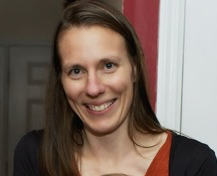Celebration of Scholars
Incorporating long-term research projects into the Carthage environmental science curriculum: lessons from the EREN-DATIS project
 Name:
Tracy Gartner
Name:
Tracy Gartner
Department: Natural Science
Type of research: Independent research
Funding: National Science Foundation
Abstract
Undergraduate research ideally gives students a chance to
participate in scientific inquiry the way science is actually practiced.
However, while science has grown increasingly collaborative, undergraduate
research often remains largely confined to single institution studies.
Collaborative research networks can unite faculty and undergraduates from
different institutions in work on broader scale questions using shared
protocols and shared data. To this end, in 2010, we co-established the
Ecological Research as Education Network (EREN), which unites ecological
researchers at primarily undergraduate institutions (PUIs). Although
collaborative research networks like EREN offer PUI faculty and students
increased research opportunities, there are also significant challenges to
successfully coordinating and implementing these projects, including the fact
that projects may not fit easily into a single semester. One on-going EREN
project led here at Carthage is our Decomposition in Terrestrial and Aquatic
Invaded Systems (DATIS) project, a multi-year examination of leaf decomposition
rates from native and non-native species across a gradient of sites.
Decomposition is a good case study because it is a long-term process that
integrates many processes in an ecosystem. Here, we report challenges
encountered, as well as strategies used to counter these challenges.
Submit date: March 26, 2018, 8:06 p.m.
